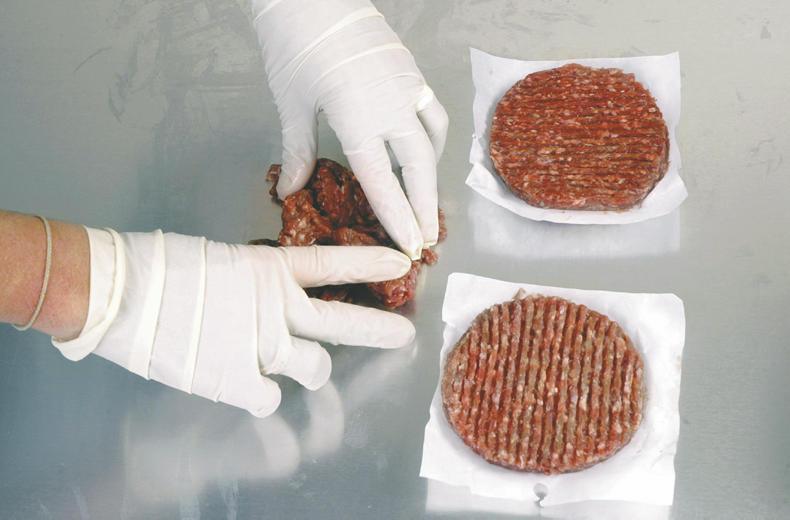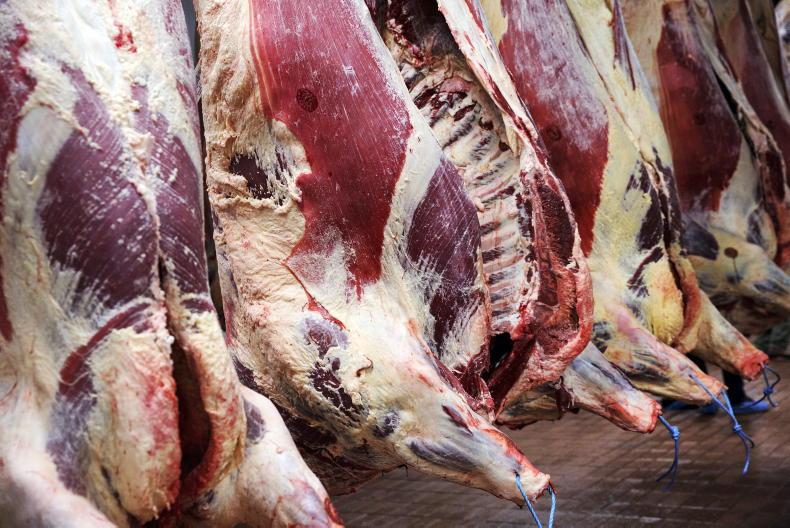Lab-grown meat cannot provide a cure-all for the detrimental climate impacts of meat production without a large-scale transition to a de-carbonised energy system, a new study by the Livestock, Environment and People Programme (LEAP) has found.
The study looked at the impact of climate change on several production methods for lab-grown and farmed beef, accounting for the differing greenhouse gases produced.
Researchers found that replacing cattle with lab-grown meat may not be a simple replacement of high-impact with low-impact.
Projections
Some projections for the uptake of particular forms of cultured meat could indeed be better for the climate, but others could actually lead to higher global temperatures in the long run, it found.
The report highlights that the climate impact of lab-grown meat production will depend on its energy demands and the availability of low-carbon energy sources.
Lead author Dr John Lynch said: “There has been a great deal of public interest in cultured meat recently, and many articles highlight the potential for substituting cattle beef with cultured meat to provide an important climate benefit.
“We show that it is not yet clear whether this is the case, partly because of uncertainties about how cultured meat would be produced at scale. An important issue in comparing farmed and cultured beef is that the different warming impacts of greenhouse gases are also not well accounted for in the standard measure used in carbon footprints,” he said.
Data
The researchers examined available data on the emissions associated with three current cattle farming methods and four possible meat culture methods, assuming current energy systems remained unchanged.
Using this data, they modelled the potential temperature impact of each production method over the next 1,000 years.
The researchers’ model showed that while cattle initially have a greater warming effect through the release of methane, in some cases the manufacture of lab-grown meat can result in more warming.
This, they said, is due to the fact that even if consumption of meat were entirely phased out, the warming from carbon dioxide would persist, whereas warming caused by methane ceases after only a few decades.
“This is important because while reducing methane emissions would be good – and an important part of our climate policies – if we simply replace that methane with carbon dioxide it could actually have detrimental long-term consequences,” Lynch said.
Read more
Methane emissions in EBI by 2023
Farmer Writes: time for farmers to embrace the environment
What should farmers expect from the Climate Action Committee?
Lab-grown meat cannot provide a cure-all for the detrimental climate impacts of meat production without a large-scale transition to a de-carbonised energy system, a new study by the Livestock, Environment and People Programme (LEAP) has found.
The study looked at the impact of climate change on several production methods for lab-grown and farmed beef, accounting for the differing greenhouse gases produced.
Researchers found that replacing cattle with lab-grown meat may not be a simple replacement of high-impact with low-impact.
Projections
Some projections for the uptake of particular forms of cultured meat could indeed be better for the climate, but others could actually lead to higher global temperatures in the long run, it found.
The report highlights that the climate impact of lab-grown meat production will depend on its energy demands and the availability of low-carbon energy sources.
Lead author Dr John Lynch said: “There has been a great deal of public interest in cultured meat recently, and many articles highlight the potential for substituting cattle beef with cultured meat to provide an important climate benefit.
“We show that it is not yet clear whether this is the case, partly because of uncertainties about how cultured meat would be produced at scale. An important issue in comparing farmed and cultured beef is that the different warming impacts of greenhouse gases are also not well accounted for in the standard measure used in carbon footprints,” he said.
Data
The researchers examined available data on the emissions associated with three current cattle farming methods and four possible meat culture methods, assuming current energy systems remained unchanged.
Using this data, they modelled the potential temperature impact of each production method over the next 1,000 years.
The researchers’ model showed that while cattle initially have a greater warming effect through the release of methane, in some cases the manufacture of lab-grown meat can result in more warming.
This, they said, is due to the fact that even if consumption of meat were entirely phased out, the warming from carbon dioxide would persist, whereas warming caused by methane ceases after only a few decades.
“This is important because while reducing methane emissions would be good – and an important part of our climate policies – if we simply replace that methane with carbon dioxide it could actually have detrimental long-term consequences,” Lynch said.
Read more
Methane emissions in EBI by 2023
Farmer Writes: time for farmers to embrace the environment
What should farmers expect from the Climate Action Committee?










SHARING OPTIONS